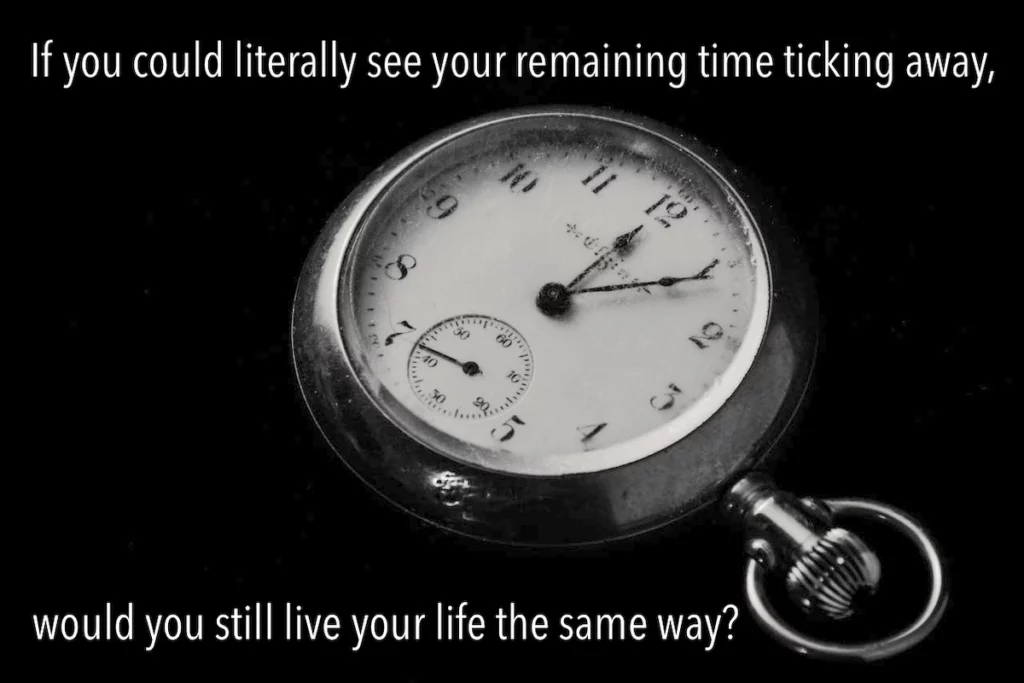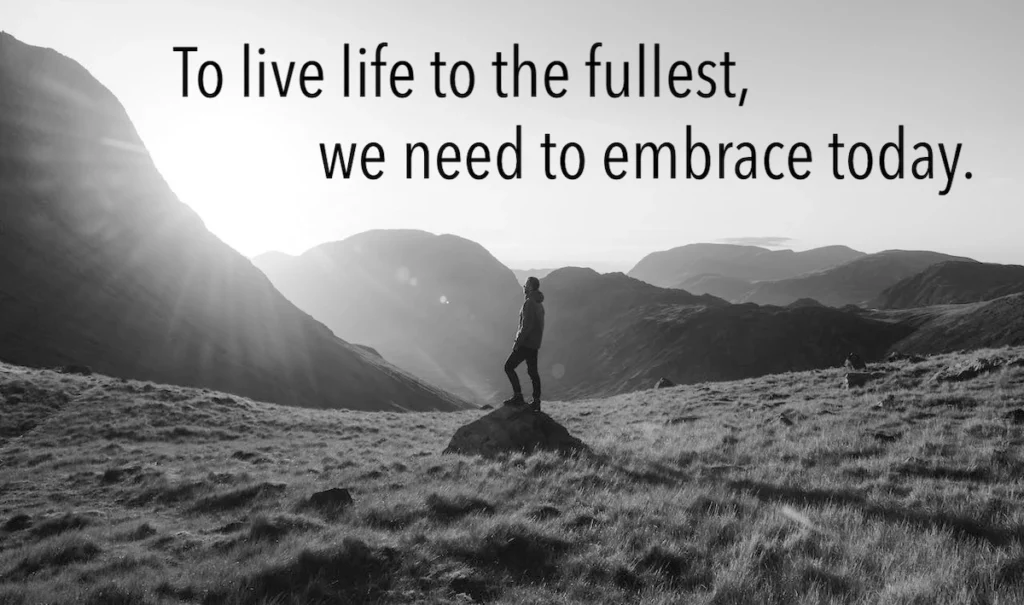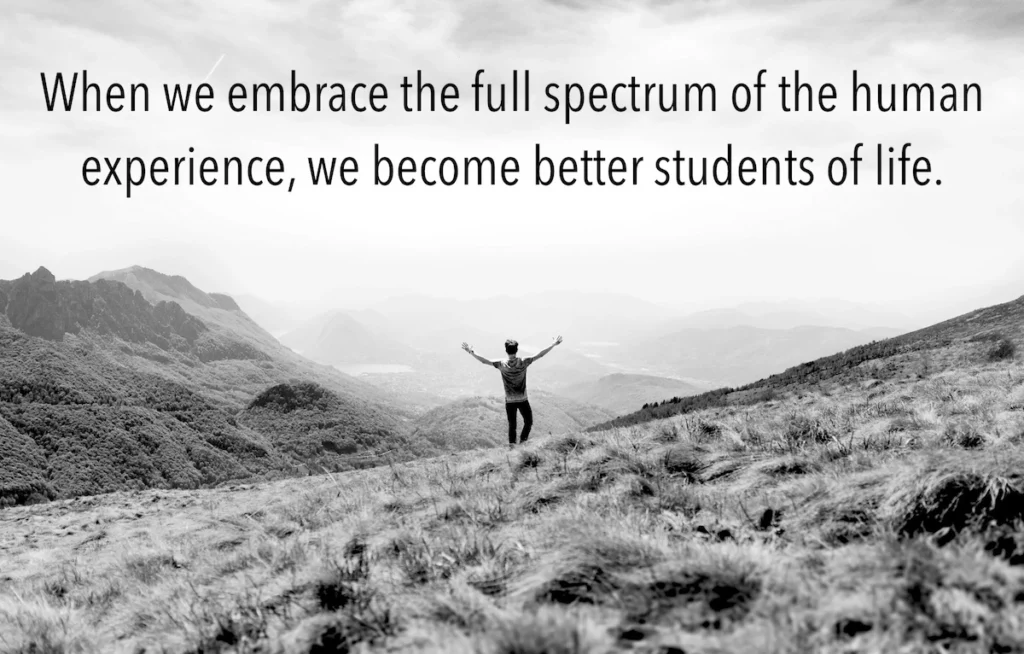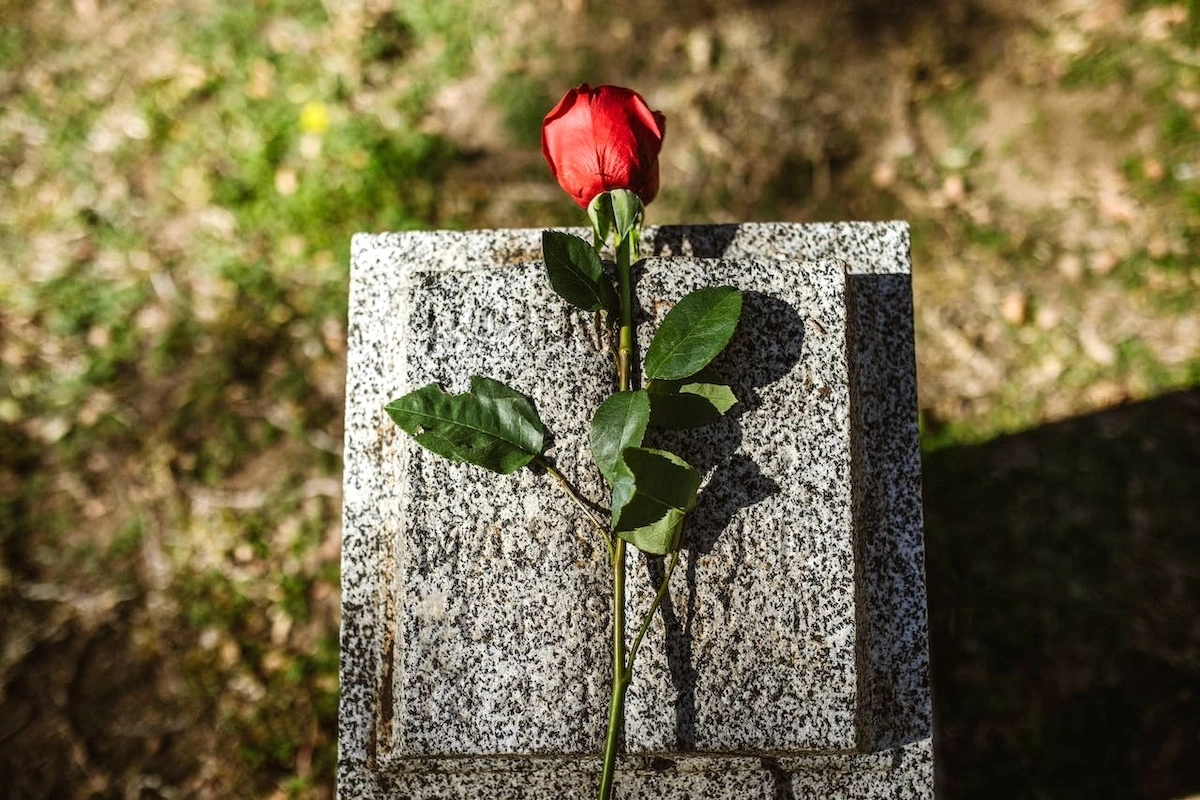Mr Wow says that I’ve a morbid fascination with death. That’s because I often talk about end-of-life planning, terminal illnesses, freak accidents, euthanasia, reincarnation, afterlife… you get the picture.
For many people, death is a taboo subject. However, I think it makes sense to discuss it given that there’s no way we can escape its inevitability. To put it bluntly, death awaits all of us.
Talking about death is important. Firstly, it’s the responsible thing to do. By clearly stating our wishes for financial, healthcare and funeral matters, we ease our loved ones the burden of making tough decisions on our behalf.
Secondly, death is a great teacher. When we talk about death, we also reflect on life. This prompts introspection, guiding us towards a more positive and purposeful way of living.
Here are 5 things death teaches us about life:
- Prioritise What Matters
- Pursue Our Dreams
- Enjoy the Present
- Learn to Let Go
- Appreciate Life’s Lessons
It’s too bad dying is the last thing we do, because it could teach us so much about life.
Robert Herford
1. Prioritise What Matters
Death serves as a reminder of life’s impermanence and the transient nature of everything. By recognising that our time is finite, we’re encouraged to reassess our priorities and focus on what truly matters. Instead of merely inhaling oxygen, we begin to live intentionally by making choices that align with our values and goals.
People love to ask me why I chose to retire in my early 40s. The short answer: I don’t know when my life will come to an end, so between more money and complete time freedom, I prioritise the latter. While I advocate longevity planning, I don’t think we should assume that we will definitely live till a ripe old age. That’s the easiest way to forget that life is in fact fragile and fleeting.
James Dean died at 24. Paul Walker died at 40. Both died in a car crash. So yes, I feel fortunate that I made it past my mid-40s.
For years, I’ve worked hard to accumulate wealth and I’m satisfied with what I have. Right now, I just want to spend more time with my family and do the things I love, e.g. blogging and inventing dishes in my kitchen. Death reminds me to make every day count, cherish relationships and pursue passions that bring happiness and fulfillment.
Assuming that we will definitely live till a ripe old age is the easiest way to forget that life is in fact fragile and fleeting.
Check out: The Joy of Simple Living: My Story
2. Pursue Our Dreams
To boost sales, many e-commerce sites use countdown timers to create a sense of urgency in shoppers. Each and every one of us also has a timer that is counting down. But because this timer is invisible, we don’t always act with a sense of urgency. As a consequence, we procrastinate and miss out on opportunities.
By a sense of urgency, I don’t mean rushing through life and operating in a panic mode. What I mean is that we should embrace mortality as motivation and take a proactive approach to life.
When we truly appreciate the value of time and the significance of making the most of every opportunity, we stop putting our goals on the back-burner. We know we need to step out of our comfort zones, take some risks and pursue our dreams before it’s too late.
“Carpe diem. Seize the day, boys. Make your lives extraordinary,” as John Keating in Dead Poets Society would say.

3. Enjoy the Present
For a period of my life, I was an extreme saver. Determined to reach my financial goals sooner rather than later, I kept to a shoestring budget and didn’t buy myself anything other than food. I was so good at resisting temptation that Mr Wow called me the Grandmaster of Delayed Gratification (he didn’t mean it as a compliment). It took me a while to realise that I was living for the future and neglecting the present.
Many people are guilty of not living in the present. Some are too future-oriented. Some dwell too much on the past. Some are simply too caught up in the rat race. Are you one of them?
The present is important because we’re not guaranteed a tomorrow. By learning to savour the moment, we develop a greater appreciation for life and the little things that make it beautiful. Instead of overthinking or letting speed become our default mode, we live. Instead of multitasking, we focus.
So the next time you’re with your loved ones, resist the urge to check your phone. Clear your mind of work and other distractions and give them the attend they deserve. Treasure these moments because they don’t last forever.

4. Learn to Let Go
One of the positive aspects of ageing is that we gain perspective on how we really want to live our lives. For me, it includes letting go of regrets and situations I’ve no control over.
Our time and energy are precious resources and the inevitability of death helps us understand that many issues that cause stress are, in the grand scheme of things, inconsequential. Letting go frees us from the burden of trying to manage situations that are beyond our power. This enables us to redirect our energy towards areas where we’ve influence over and move forward in life. It does wonders for our well-being, relationships and growth as a person.
Although I’ve not fully mastered the art of letting go, I feel a greater sense of inner peace compared to just a few years ago. I’m more forgiving to myself these days and find it easier to let nature take its course when it comes to certain things. Life’s too short to be an uptight control freak.
The inevitability of death helps us understand that many issues that cause stress are, in the grand scheme of things, inconsequential.
5. Appreciate Life’s Lessons
Life is like the weather — both are characterised by dynamic and unpredictable qualities. Just as the weather can turn from sunny to stormy on a dime, life presents a series of fluctuations. Unexpected events, both good and bad, can and will take place, shaping our experiences in ways that are hard to foresee.
All of us have had our ups and downs, laughter and tears, hopes and doubts. Some have it a lot tougher than others and it can be difficult to cope with the fact that life is unfair. Reflecting on death helps as it fosters a sense of gratitude for the gift of life. We begin to appreciate our existence and develop a more accepting attitude towards the struggles we face.
When we embrace the full spectrum of the human experience, we become better students of life. We no longer sweat the small stuff because we’re more able to put trivial matters into context. We find challenges more manageable because we’ve a more resilient mindset. Even if we fail, we will think of a way to bounce back.

Buddha said, “We begin to die from the moment we are born, for birth is the cause of death. The nature of decay is inherent in youth, the nature of sickness is inherent in health, in the midst of life we are verily in death.”
This poignant quote is a reminder that our invisible timer will eventually stop ticking one day. So let’s strive to live meaningfully by (1) giving priority to the things that matter, (2) following our dreams, (3) being more present, (4) finding happiness in letting go, and (5) appreciating the value of every life lesson.
When we’re near the end of the road, I hope we can all say “good game” and die with no regrets because we’ve put up a good fight and lived the best possible life.
Finally, I like to approach life with a sense of humour, so here are three dark jokes to lighten your mood:
1️⃣ A priest asks the convicted murderer at the electric chair, “Do you have any last requests?” “Yes,” replies the murderer. “Can you please hold my hand?”
2️⃣ “I’m sorry” and “I apologise” mean the same thing. Except at a funeral.
3️⃣ The guy who stole my diary just died. My thoughts are with his family.
You may also like: 10 Motivational Quotes to Fuel Your Success | 13 Timeless Quotes to Help You Navigate Life Joyfully | 10 Life Lessons from Clash of Clans | Why It’s Important to Enjoy Boredom


Sorry for your loss.
Death serves us as a reminder of so many important things in life. You have captured so many important points here.
Thanks, JJ. Let’s strive to always lead a happy, meaningful and purpose-driven life.
I do not even know how I ended up here but I thought this post was great. I don’t know who you are but definitely you’re going to a famous blogger if you aren’t already. Cheers!
Thank you so much, Jacquelyn! 🙏
Very insightful post and sorry for your loss!
I recently have been a caretaker for my dad who is near end of life and a lot of the areas that you highlighted above resonate deeply with me.
One of the areas that I’ve worked on the last few months is the art of letting go. This was incredibly hard for me, but like you pointed out above, it has brought me much more inner peace.
The burden we carry when we don’t forgive ourselves not only affects us, but those around us.
Thanks, Rob. I’m really sorry to hear about your dad. Being a caretaker can be challenging. Please take good care of yourself.
Letting go requires a lot of emotional equanimity and is often easier said than done. We all have attachments we cling to, things we resist, situations we refuse to accept. I’m still a work in progress for sure.
I’m glad you’ve found greater inner peace over the last few months. Keep working on it, my friend. You’re not alone. Sending good thoughts your way.